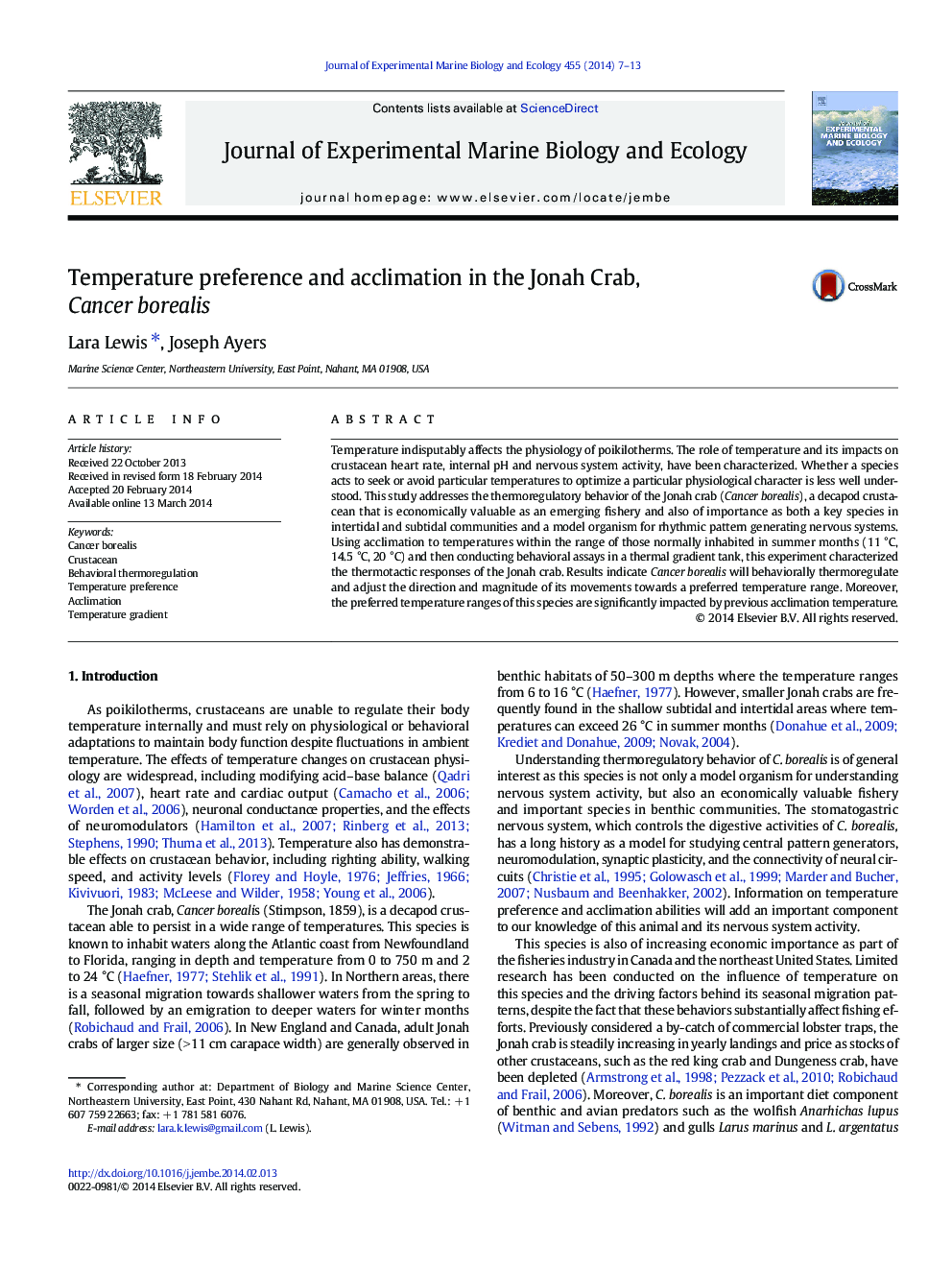| Article ID | Journal | Published Year | Pages | File Type |
|---|---|---|---|---|
| 6304163 | Journal of Experimental Marine Biology and Ecology | 2014 | 7 Pages |
â¢We investigate the behavior of differentially acclimated Cancer borealis in a thermal gradient.â¢The Jonah crab, Cancer borealis, will behaviorally thermoregulate to a preferred temperature.â¢The preferred temperature range of C. borealis is modifiable by its thermal history.
Temperature indisputably affects the physiology of poikilotherms. The role of temperature and its impacts on crustacean heart rate, internal pH and nervous system activity, have been characterized. Whether a species acts to seek or avoid particular temperatures to optimize a particular physiological character is less well understood. This study addresses the thermoregulatory behavior of the Jonah crab (Cancer borealis), a decapod crustacean that is economically valuable as an emerging fishery and also of importance as both a key species in intertidal and subtidal communities and a model organism for rhythmic pattern generating nervous systems. Using acclimation to temperatures within the range of those normally inhabited in summer months (11 °C, 14.5 °C, 20 °C) and then conducting behavioral assays in a thermal gradient tank, this experiment characterized the thermotactic responses of the Jonah crab. Results indicate Cancer borealis will behaviorally thermoregulate and adjust the direction and magnitude of its movements towards a preferred temperature range. Moreover, the preferred temperature ranges of this species are significantly impacted by previous acclimation temperature.
